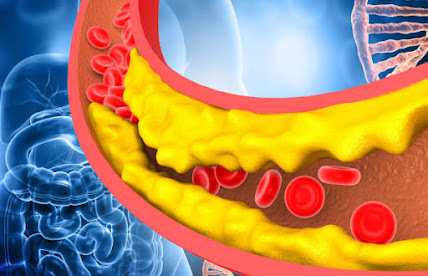Everything You Need to Know About Lipid Disorders | Cholesterol Doctors
What is A Lipid Disorder?
When you have a lipid disorder, your LDLs and/or triglycerides tend to rise. HDLs are considered beneficial because they aid in the elimination of LDLs from the body. Arteriosclerotic plaques are formed when fatty substances, such as LDLs and triglycerides, accumulate in the body's tissues, particularly the arteries. As a result, this can increase the risk of cardiovascular issues like heart disease and have serious consequences for cardiovascular health.
One-third of U.S. adults have elevated LDL cholesterol levels, according to the American Academy of Family Physicians. In order to reduce LDL cholesterol, it is recommended by Dr. Steven Winiarski is a lipid specialist in Atlanta, GA (US) that people eat fewer fatty foods and raise their HDL cholesterol levels.
Symptoms of Lipid Disorder
It's worth noting that people typically don't notice they have a lipid disorder until a serious event like a stroke or heart attack. There have been isolated reports of the following symptoms in those with extremely high lipid levels:
Accumulation of fatty tissue around the tendons and joints, visible as yellow bumps or folds on the skin (xanthomas).
Elevated cholesterol may cause white arcs across the cornea of the eye (arcus senilis) even in young persons.
Yellow, elevated bumps around the eye corners (xanthelasma)
Lipid disorders: What Causes Them
Genetics, lifestyle, and other underlying health issues all have a role in the development of lipid diseases. If you witness any of these get in touch with a Lipid specialist in Atlanta.
Genetic factors
Genes have a role in the development of several lipid diseases. One such condition is familial hypercholesterolemia (FH), in which high cholesterol is inherited. One in two hundred to five hundred people worldwide suffer from FH, but those of French Canadian, Ashkenazi Jewish, Lebanese, or Afrikaner (a South African ethnic group) descent are more likely to be diagnosed. A person's decision to be tested for high cholesterol levels may be influenced by knowledge of their own family history of cholesterol and cardiovascular disease.
Diet and lifestyle factors
Saturated fat-rich foods contribute to elevated blood cholesterol and triglyceride levels. Some examples of foods high in saturated fats are:
Cheese, cream, and butter are examples of dairy products.
Sweets like ice cream, cookies, and cakes.
Sausages, bacon, and salami are all examples of cured meats that are high in fat and calories.
Dishes cooked in animal fats such as lard, coconut oil, and palm oil.
Trans fat-containing foods are especially harmful since they increase levels of "bad" cholesterol while decreasing levels of "good" cholesterol. Here are some examples of foods that are high in trans fats:
Pastry, bread, and other baked items.
Greasy, fried delicacies like chicken fingers, french fries, and donuts.
Products are made from hydrogenated oils, such as shortening and some margarine.
Alternatives to milk in coffee.
In addition to these dietary and lifestyle variables, the following may also cause an increase in cholesterol levels:
Tobacco use or secondhand exposure.
Being physically inactive.
Being overweight; being obese.
Having a few too many drinks.
Using drugs, such as diuretics, to induce urination.
Illnesses and injuries
In addition to these underlying health issues, which may raise cholesterol levels:
Diabetes.
Hypothyroidism.
A condition affecting the kidneys.
Liver trouble.
High cholesterol and other lipid problems are widespread in the United States, but they may be treated with a change in diet and lifestyle, and sometimes with medicine. If you have a history of high cholesterol in your family or are experiencing any symptoms that may be related to lipid problems, it is important to discuss your concerns with a medical expert regarding how a lipidologist can help.

.jpg)


Comments
Post a Comment